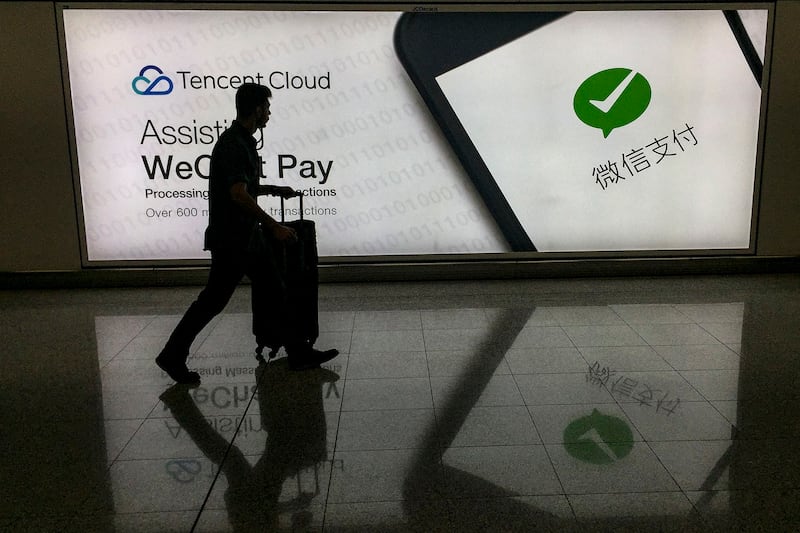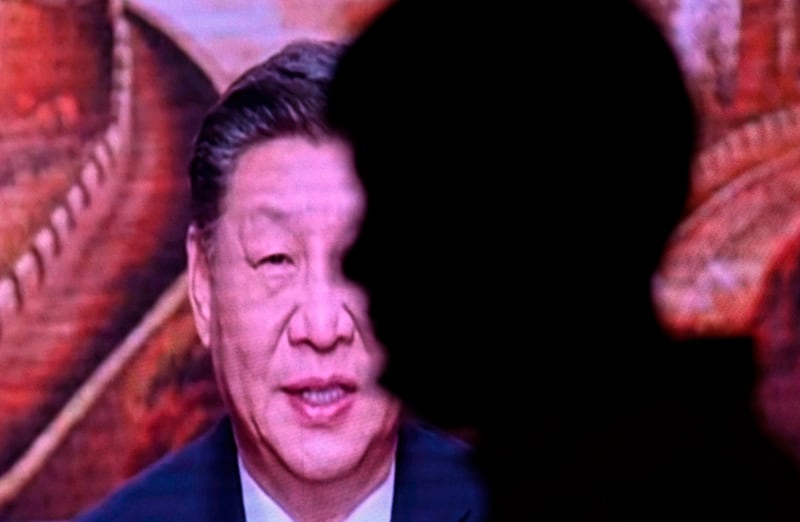Police across China have launched a New Year crackdown on online “rumors," a term often used by the ruling Communist Party to ban any information and complaints circulating online that hasn't received the blessing of its approved media outlets.
Police departments in Shanghai, Nanjing, Inner Mongolia and other places have already announced some key "rumor" cases, most of them linked to unofficial comments and information linked to the economy, social issues and healthcare on social media platforms like WeChat and Douyin, the domestic version of TikTok.
Analysts said officials are increasingly nervous about simmering public dissatisfaction at Communist Party leader Xi Jinping's handling of the economy, which was evident during the "white paper" protests in November 2022, as well as underlying mass public mourning for late premier Li Keqiang last October.
They said many of those arrested were just sounding off about the state of the economy, or trying to keep themselves and their friends informed by using overseas platforms not affected by government censorship.
Police in Shanghai reported eight "online rumor cases," including online reports that Shanghai's City God Temple had gone bankrupt and had failed to meet its reserve price while auctioning off the building, holding a man surnamed Liu for a five-day administrative sentence for the post.
In another case, a man surnamed Su was held for 10 days for splicing and editing videos of police treatment of a Shanghai cab driver at the city's South Railway Station, it said.
‘Stability maintenance’
Nanjing-based current affairs commentator Luo Wei said more people are complaining and trading information online in the wake of the economic downturn, and the authorities are sending out a warning that they should be careful what they say.
"The economy has been very bad since the COVID-19 restrictions, and there has been a growing feeling of social injustice for some time, which has finally burst out," Luo said, in a reference to the lifting of President Xi Jinping's zero-COVID policy in December 2022, following nationwide protests that November.

"They have noticed a lot of complaining among the public -- most of the people arrested weren't spreading rumors -- this move is about stability maintenance," she said, in a reference to a nationwide system of law enforcement that slaps restrictions and controls on critics of the government before they take action.
The detentions came as the Ministry of Public Security designated 2024 as the "year of special action to combat online rumors," the Legal Daily newspaper quoted Li Tong, deputy director of the Cyber Security Bureau of the Ministry of Public Security, as saying on Dec. 25.
The ministry will be "deploying public security agencies across the country to carry out a one-year special action," Li said. "The crackdown will be carried out across the entire chain, across all platforms, and in all areas."
Issuing warnings
Police will be focusing on "major cases" of online rumors as an "entry point to investigate loopholes in websites and platforms," and will be issuing warnings and rectification orders, said the paper, which is the official newspaper of the Communist Party’s law enforcement arm, the Central Political and Legal Affairs Commission.
Earlier this week, Nanjing police jailed five people on brief administrative sentences for online comments linked to social issues and the Dec. 18 magnitude-6.2 earthquake in the western province of Gansu that left more than 150 dead and hundreds injured.
Luo said the crackdown on "online rumors" is really about silencing people who speak out online.
"It's just about silencing people," he said. "They think that's the best way of solving problems."
Police in Inner Mongolia have also targeted those who use circumvention software to get around the Great Firewall of internet censorship and spread information on overseas platforms that had already been deleted in China.

Police in the northern region's Alxa Banner jailed a WeChat user identified only by his surname Peng for 10 days after he reposted information about more than 20 people who had allegedly tested positive for HIV at a government-backed institution.
Another person surnamed Li was handed a 7-day administrative sentence for saving and reposting the information to their WeChat circle of friends.
‘Very nervous’
Germany-based ethnic Mongolian dissident Xi Haiming said the authorities fear they could face a crisis of governance, so are extremely nervous about what gets posted online.
"The more nervous they get, the stricter they will be," Xi said. "They are very nervous now, and ethnic regions are no different."
Even overseas activists are feeling the effects, he said.
"I've spoken to a few friends ... who used to be members of several WeChat groups, but have now been kicked out, and rejected as friends on WeChat," Xi said. "The police are even watching when [somebody] likes them on Facebook."
Shanxi-based scholar Chen Chen said people are increasingly relying on overseas media for their news and information, particularly Chinese-language news from overseas sources.
"The government's control of the internet will only get stricter and stricter," Chen said. "It reflects the fragility of the regime, and the delicacy of the current situation."
"It's about their need to maintain so-called political stability," he said.
Translated by Luisetta Mudie. Edited by Malcolm Foster.

